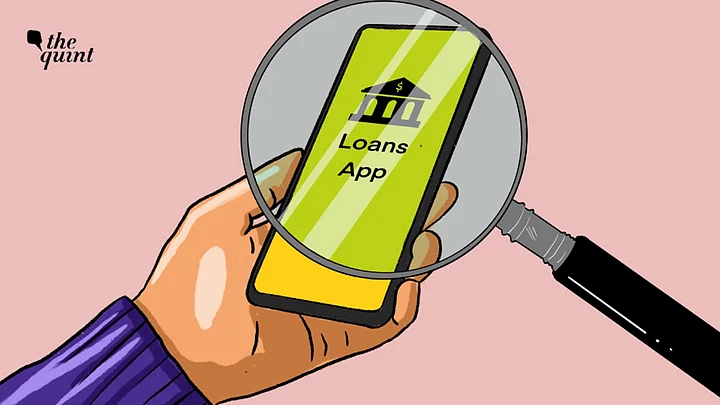“I was numb, shocked. I thought of suicide but did not have the courage...Morphed photos showing me nude were sent to everyone in my contact list, including my daughter, my father’s acquaintances, and children for whom I am like a mother,” Bhumi Sinha, one of the victims that has faced harassment after borrowing money from a Chinese loan app, told the BBC.
In its documentary – The Trap – English media house The British Broadcasting Corporation highlights the vicious circle of extortion by instant loan apps.
BBC journalist Poonam Agarwal dives into the loan app scams through the stories of three victims, including Sinha, in the 44-minute-long documentary, published in India on 11 October.
Earlier this year, Indian government banned over 90 instant loan apps for indulging in “improper data storage and transfer” to other countries and money laundering activities.
Agarwal investigates how these apps use intimidation, blackmailing, and harassment as tools for the recovery of money, which has allegedly claimed the lives of at least 60 people.
But exactly do instant loan apps do? These apps provide loans to people within a short period with minimal documents. However, these loans are to be repaid within seven to ten days. They appeal to those in urgent need of money by using lines like "Get a personal loan in minimum time with minimum documentation".
Anyone in need of money can apply for a loan on these apps by providing details of their documents like Aadhaar and PAN card. Some also ask for phone access permissions like contacts, image gallery, etc.
Following this, the loan amount is transferred to the user in short period of time, sometimes instantly.
Once applied, the apps gains access to a lot of your personal details through your phone data. These details are then used to harass people for recovering the money.
Constant Calls, Threats
Sinha, who is a resident of Mumbai, told BBC that she was in urgent need of money when her salary was delayed. Therefore, she borrowed some money from one of these apps called Asan Loan.
She was supposed to pay back the amount in seven days. However, “On the fifth day itself I began getting calls to repay the loan,” Sinha said.
Sinha told BBC that she would receive multiple calls from recovery agents every day, threatening her to pay back the amount or else they would start calling the people from her contact list. To pay back, she had to take another loan and then another.
The vicious cycle of threats and harassment continued, and eventually her morphed nude images were sent to people in her contact list, including her daughter, father's friends, etc.
With help of a former recovery agent, Agarwal was also able to get inside two such call centres in Delhi and Noida from where these recovery agents call the borrowers.
In another case, 24-year-old civil servant from Telangana, Kirni Mounika, also borrowed loans from multiple apps, and was subject to similar harassment from recovery agents. Eventually, she died by suicide when she could not pay the amount.
Who's Behind These Apps?
In her investigation, Agarwal traced these apps back to Parshuram Takve, who heads at least four call centres. Takve has also been booked under various criminal cases of extortion, abetment of suicide, etc, the documentary stated. After cases of suicide increased, Takve, along with his Chinese wife, Liang Tian Tian, were nowhere to be found.
With further investigations, Agarwal contacted a Chinese businessman Li Xiang, in Hong Kong, who claimed to run a loan app business in India.
(At The Quint, we question everything. Play an active role in shaping our journalism by becoming a member today.)
